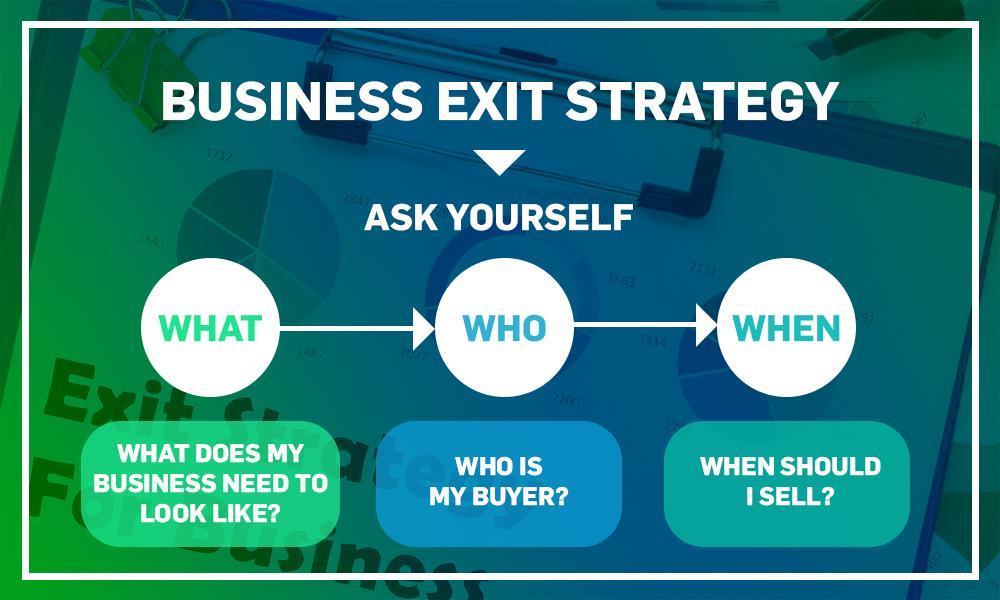Maybe you’ve put a lot of your own money into your business and want to de-risk your personal investment. Perhaps you’re simply ready to retire. You could have investors looking for a return on their capital. Then again, you may just be looking to pass your business on to a family member.
Regardless, here’s why creating a business exit strategy is so important, how to avoid common mistakes when selling a business and the inside scoop on getting the best deal possible.
You plan to start a business – plan your exit, too
Quite simply, the biggest mistake people make when selling a business is not planning ahead. Then, if or when they receive speculative interest from a potential buyer, they’re completely under-prepared.
Specialising in mergers and acquisitions (M&A) for Hutcheon Mearns, Adam Maitland has worked with many business owners in this position. He says: “This can put the seller on the back foot from day one. You might get the deal done but the chances of price erosion throughout are probably higher than if you’re well planned, prepared and ready to go.”
A business exit strategy (involving areas such as finance, legal and tax advice) allows you to mitigate transaction risks and complicating factors, and ensure you get the best deal possible by optimising shareholder value.
Adam adds: “I would suggest that a lot of companies do not have a formal exit strategy. But I genuinely believe it’s one of the most valuable things to have in place, and it should go hand-in-hand with your wider business strategy and business plan.”
3 things to include in a business exit strategy

Firstly – what is a business exit strategy? Essentially, it’s a plan to exit your business at some point in the future. That might mean selling your business for the most amount of money possible, or it could be a succession plan to pass it on to management or family.
There is no minimum size of business for thinking about an exit strategy. It can help you organise your corporate information, identify what your value proposition is and why it’s of interest to a certain pool of buyers (i.e. you have attractive technologies, a great location or extensive customer pool).
So what should be covered in an exit strategy?
1. What does a business need to look like to be the most “sellable”?
- What sort of size does it need to be to “turn the dial” for potential buyers?
- What does your service offering need to look like?
- What is your market reach?
- What geographies are you going to be working in?
- What does your team look like? (If you are an owner manager, can the business still run without you? Do you have a tier 2 in place?)
Answering these questions could help you make your business more attractive to buyers.
2. Who is your buyer?
“This will help you shape your exit strategy, because ultimately your business is going to need to align to somebody and their acquisition strategy,” says Adam.
3. When do you ideally want to exit or sell your business?
It could be next year, in two years or in five years. It means you can put a timescale on any action you need to take.
What do you actually sell when selling a business?
There are typically two approaches to selling a business. “You’re either buying a legal entity and everything that comes with that, or you’re buying assets within a legal entity,” explains Adam.
The most common M&A transaction involves selling everything, all shares in the company. Any property, assets, intellectual property, ongoing trade (customers and contracts), liabilities and the employees go to the buyer.
There are also “trade and assets” deals. This means you sell specific items within the business (like intellectual property, assets or specific contracts, for example) instead of shares. No liabilities transfer to the buyer (which can make things simpler from a due diligence perspective) but this option does have different connotations from a tax and value perspective for shareholders.
4 factors that can complicate an exit strategy, according to business exit advisors
Hutcheon Mearns has a team of business exit advisors in Scotland who have been involved in numerous M&A deals, which means Adam has seen a lot of the good and bad. When considering an exit strategy, be aware of complicating factors like:
1. Not being on the same page
Shareholders, owner managers and investors having misaligned views on how or when things should be done can be tricky. Having the right board and advisors in place can support this.
2. Elements that may impact your equity value
There’s a gap between the enterprise value (typically the headline price the buyer offers to pay) and the equity value (how much you’ll actually get at the end of the sale – the price per share). This gap is impacted by factors like how much debt and cash the business has, along with ongoing working capital requirements. A significant amount of value can be won or lost here.
3. Tax implications
This is often one of the biggest deal issues in a business exit, in Adam’s experience. Getting the right tax advice from a corporate and personal perspective, early, can be hugely valuable.
4. Not having well-structured business documentation
When it comes to selling your business, you will need to prepare a data site for due diligence. This includes information on your corporate organisation, contracts, finances, tax, employees and property amongst many other areas. “Collating all that information can be a nightmare if you’re trying to do it against tight timelines, and has the potential to delay a deal,” says Adam.
“From a financial perspective, we would always recommend companies put in place robust monthly management accounts and reporting. Even if you don’t have the resources internally for this, outsource it. Whatever your size, nobody will ever regret having better information regarding their business operations, even if it costs a little bit of money.”
Mitigate complicating factors by preparing for your business exit
You can – and should – get legal, financial and tax advice to mitigate any transaction or exit risk. That’s why a business exit strategy is so valuable. It can save you stress, hassle and get you a much better deal when selling or leaving your business.
Hutcheon Mearns has a team of expert business exit advisors in Scotland who can help you create and execute an exit strategy. Plus, the firm’s wider team of chartered accountants can help sort your business’s financial information and records to get you ‘sale-ready’.
Put a business exit strategy in place – find out how Hutcheon Mearns can help.










